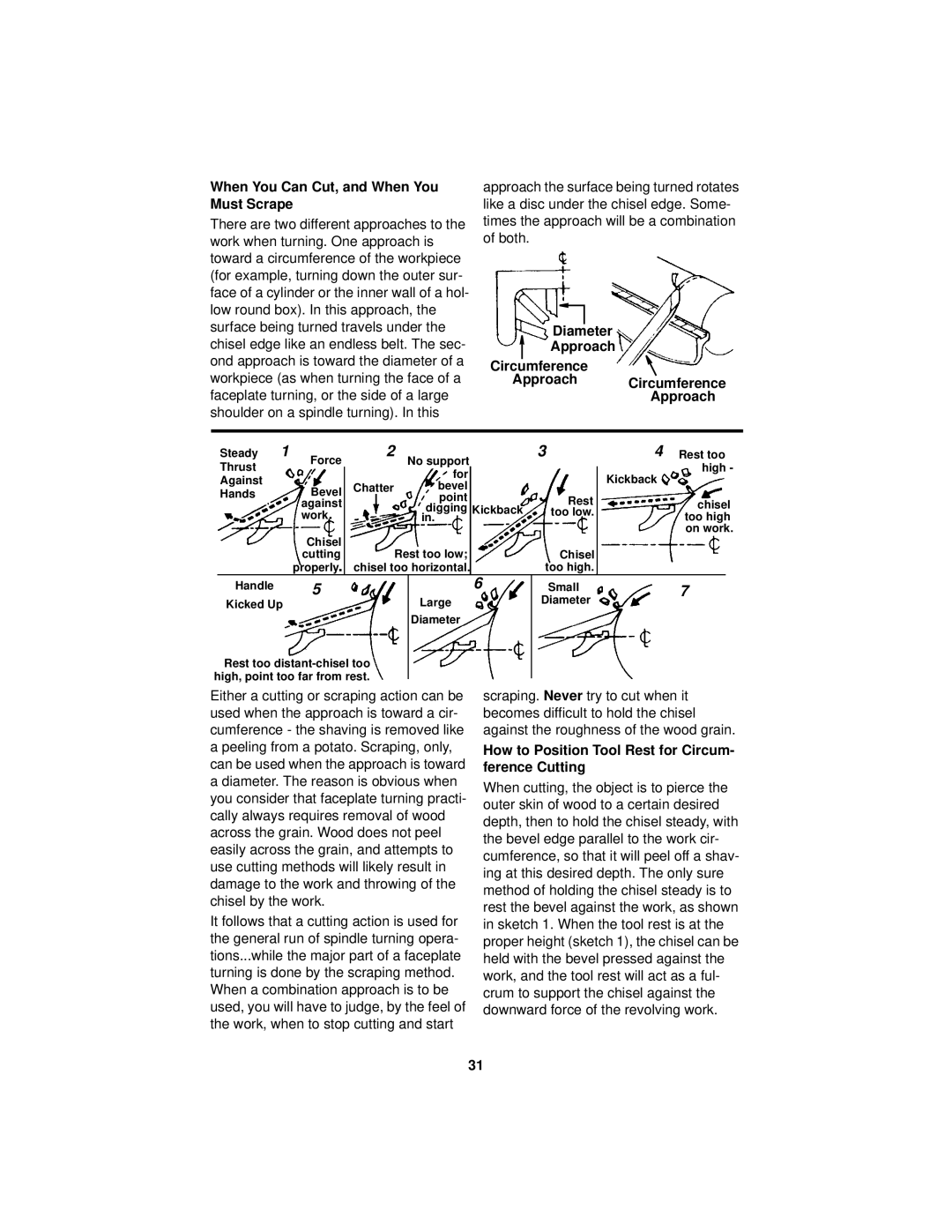
When You Can Cut, and When You Must Scrape
There are two different approaches to the work when turning. One approach is toward a circumference of the workpiece (for example, turning down the outer sur- face of a cylinder or the inner wall of a hol- low round box). In this approach, the surface being turned travels under the chisel edge like an endless belt. The sec- ond approach is toward the diameter of a workpiece (as when turning the face of a faceplate turning, or the side of a large shoulder on a spindle turning). In this
approach the surface being turned rotates like a disc under the chisel edge. Some- times the approach will be a combination of both.
Diameter
Approach
Circumference
Approach Circumference
Approach
Steady | 1 | 2 |
|
| 3 | 4 Rest too | |
Thrust | Force |
| No support |
|
| high - | |
|
|
| for |
|
| ||
Against |
|
|
|
|
| Kickback | |
Bevel | Chatter | bevel |
|
| |||
Hands |
|
|
| ||||
|
| point |
| Rest |
| ||
|
|
|
| ||||
| against |
| digging | Kickback | chisel | ||
|
| ||||||
| work. |
| in. |
| too low. | too high | |
|
|
|
|
|
|
| on work. |
| Chisel |
| Rest too low; |
|
|
| |
| cutting |
|
| Chisel |
| ||
| properly. | chisel too horizontal. | 6 | too high. |
| ||
Handle | 5 |
|
|
| Small | 7 | |
|
| Large |
| Diameter | |||
Kicked Up |
|
|
| ||||
Diameter
Rest too
Either a cutting or scraping action can be used when the approach is toward a cir- cumference - the shaving is removed like a peeling from a potato. Scraping, only, can be used when the approach is toward a diameter. The reason is obvious when you consider that faceplate turning practi- cally always requires removal of wood across the grain. Wood does not peel easily across the grain, and attempts to use cutting methods will likely result in damage to the work and throwing of the chisel by the work.
It follows that a cutting action is used for the general run of spindle turning opera- tions...while the major part of a faceplate turning is done by the scraping method. When a combination approach is to be used, you will have to judge, by the feel of the work, when to stop cutting and start
scraping. Never try to cut when it becomes difficult to hold the chisel against the roughness of the wood grain.
How to Position Tool Rest for Circum- ference Cutting
When cutting, the object is to pierce the outer skin of wood to a certain desired depth, then to hold the chisel steady, with the bevel edge parallel to the work cir- cumference, so that it will peel off a shav- ing at this desired depth. The only sure method of holding the chisel steady is to rest the bevel against the work, as shown in sketch 1. When the tool rest is at the proper height (sketch 1), the chisel can be held with the bevel pressed against the work, and the tool rest will act as a ful- crum to support the chisel against the downward force of the revolving work.
31
